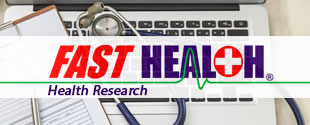21 Tips To Make Your Healthcare As Safe As Possible
Be Involved In Your Healthcare:
1. The single most important way you can help to prevent errors is to be an active member of your healthcare team. That means taking part in every decision about your healthcare. Research shows that patients who are more involved with their care tend to get better results. Some specific tips, based on the latest scientific evidence about what works best, follow below.Medications:
2. Make sure all of your doctors know about everything you are taking. This includes prescriptions, over-the-counter medicines, and dietary supplements such as vitamins and herbs. As least once a year, bring your medicines and supplements with you to your doctor. Bringing in your medications can help you and your doctor talk about them and find out if there are any problems. It can also help your doctor keep your records updated, which can help your get better quality care.3. Make sure your doctor knows about any allergies and adverse reactions you have had to medicines. This can help you avoid being prescribed a medicine that can harm you.
4. Make sure your doctor writes you a prescription, and make sure you can read it. If you cannot read your doctor's handwriting, your pharmacist might not be able to either. Ask your doctor to help you read it. You might ask him or her to print the medication, dose, and directions below the handwriting or on a separate piece of paper.
5. Ask for information about your medications in terms you can understand - both when your medications are prescribed and when you receive them.
6. When you pick up your medication from the pharmacy, make sure it is the medicine your doctor prescribed. Check to see if there are any differences in the written discharge medication list from the hospital and the label on the medication your pharmacy has given you. If you have any questions, ask the pharmacist to call your doctor. A study by the Massachusetts College of Pharmacy and Allied Health Sciences found 88% of medicine errors involved the wrong drug or the wrong dose.
7. If you have any questions about the directions on your medicine labels, ask. Medicine labels can be hard to understand. For example, ask if "four doses daily" means a dose every 6 hours around-the-clock or just during regular waking hours.
8. Ask your pharmacist for the best device to measure your liquid medicine, and ask questions if you're not sure how to use it. Research shows many people do not understand the right way to measure liquid medicines. Household teaspoons often do not hold a true teaspoon of liquid. Special devices like marked syringes help people to measure the right dose. Being told how to use the device helps even more.
9. Ask for written information about the side effects your medicine could cause, and which ones to worry about. Medicines may have many minor side effects. You need to know what is serious. If you know what might happen, you will be better prepared if it does. That way, you can report the problem right away and get help before it gets worse. A study found that written information about medicines can help patients recognize problem side effects and then get the information to their doctors or pharmacists.
Hospital Stays:
10. If you have a choice, choose a hospital that has experience with the procedure or surgery you need. Research shows patients tend to have better results when they are treated in hospitals that have experience with the patient's condition.11. While you are in a hospital, consider asking all healthcare workers who have direct contact with you whether they have washed their hands. Hand washing is an important way to prevent the spread of infections in hospitals. A recent study found when patients checked whether healthcare workers washed their hands, the workers washed their hands more often and used more soap.
12. When you are brought medications or intravenous solutions, always ask the nurse to double-check you are the patient who is supposed to receive the medications. Research has shown occasionally another patient's medication is mistakenly given to the wrong patient. Asking questions helps you understand your medications and treatment, and makes you part of the team.
13. When you are being discharged from the hospital, ask your doctor and nurse, dietician, or pharmacist to explain the treatment plan you will use at home. This includes learning about your medicines and finding out when you can get back to your regular activities. Research shows that at discharge time, doctors believe they have explained everything clearly, when many patients do not understand and choose not to speak up because they are afraid to look "stupid."
Preventing Operating on the Wrong Site:
14. If you are having surgery, make sure that you, your doctor, and your surgeon all agree and are clear on exactly what will be done. Surgery on the wrong site is rare, but even once is too often. Be sure you review with your physician which site will be operated on.Other Steps You Can Take:
15. Speak up if you have questions or concerns. You have a right to question anyone who is involved with your care.16. Make sure someone, such as your personal doctor, is in charge of your care. You need to know who is in charge and who will coordinate all your care. This is especially important if you have many health problems, or are in a hospital with many consulting doctors.
17. Make sure all health professionals involved in your care have important health information about you. Do not assume everyone knows everything they need to know.
18. Ask a reliable family member or friend to be there with you and to be your advocate (someone who can help get things done and speak for you if you are unable). You might consider creating a Medical Power of Attorney document. Even if you do not think you need help now, you might need it later. You will want someone speaking for you that knows what is going on.
19. More is not always better. It is a good idea to find out why a test or treatment is needed and how it can help you. You might be better off without it.
20. If you have a test, do not assume no news is good news. Ask about your results.
21. Learn about your condition and treatment by asking your doctor and nurse, and by using other reliable resources. For example, treatment recommendations based on the latest scientific evidence are available from the National Guidelines Clearinghouse at http://www.guideline.gov. There are many resources available to you.
















